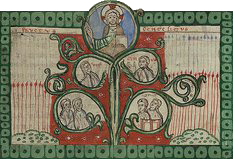Inter-cultural Transmission of Intellectual Traditions in the Middle Ages and the Early Modern Period. A comparative perspective
Participants
Anna Izdebska

The medieval Arabic intellectuals had access to the Presocratic philosophy mainly through doxographies (collections of lives of ancient philosophers and of their opinions), gnomologies (collections of anecdotes and sayings of these philosophers) and a few translations of some pseudo-epigraphy and works of later Greek authors. Apart from the translations and works composed on the basis of Greek histories of philosophy, such as the doxographies of Aetius (Pseudo-Plutarchus) and Pseudo-Ammonios, the Arabs composed their own collections, deriving their material from the translations; thus, the Arabic doxographies of al-Sijistani, al-Shahrastani, Ibn Hindu, al-Mubashir ibn-Fatik or Ibn Abi Usaybi’a present the lives (as well as the anecdotes) and the opinions of the key Greek philosophers. Within this project, I would like to study the image of the Pythagorean philosophy,, which one may find in these sources. However, my aim is not only to reconstruct this image, but also to explain the attitude of Arabic translators, compilators or readers to these archaic Greek philosophy. Apart from a purely doxographic approach, which anyway involves selection and necessarily evaluation, there was a large variety of attitudes. Some philosophers, such as Maimonides or Avicenna, agreed with their Greek predecessor Aristotle that the Presocratic philosophy was an uninteresting, preliminary stage of the development of philosophy, which was not worth real attention. On the other hand, al--Razi or Ikhwan al-Safa showed great respect towards the first Greek philosophers (in particular, Pythagoras) whom they considered to be one of the elements of the golden chain of the ancient, divine wisdom, and thus an attractive object of study. There was also a significant distinction between Sunni and Shi’a thinkers. While the Sunni, as al-Ghazali, treated Presocratics as pagans and heretics, the Shi’a, like al-Shahrastani or Ikhwan al-Safa, saw in them their grand predecessors and even prophets.
Anna Izdebska is a PhD student at the Faculty of Oriental Studies of the University of Warsaw. She read Philosophy combined with Classics (MA) and Arabic Studies (BA) at the same university. Her main interest is the Pythagorean and Platonist philosophy, from their very beginnings until the end of the Middle Ages – in the Greek, Arabic and other Middle Eastern cultures. She focuses her dissertation research on the medieval Graeco-Arabic translation movement, in particular on the reception and the actual knowledge of the Greek Pythagoreanism in the medieval Arabic world. It was also the subject of her BA thesis in Arabic, in which she analysed the Arabic commentaries on the Pythagorean Golden Verses. An enlarged version of her MA thesis will soon be published by the Warsaw University Press as a book entitled Pythagoreanism. The one as arche in metaphysics, politics and anthropology.



